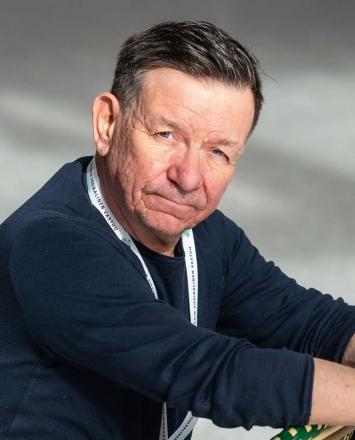Coaching the Future of Maintenance
Maria Ryytty is redefining what leadership in maintenance and automation looks like—one system, one team, and one conversation at a time. And while her EFNMS Manager Award may sit quietly on a shelf, its real value is in the signal it sends. Excellence in maintenance management doesn’t look one way, and it certainly doesn’t belong to just one kind of person.
She’s not just managing the future of industrial maintenance, she’s coaching it, nurturing it, and pushing to ensure it serves both business and humanity. From her new role at Stegra at the heart of one of Europe’s most ambitious industrial projects, she’s showing that technical leadership can be both rigorous and deeply human.
When Maria Ryytty was announced as the recipient of the EFNMS European Maintenance Manager Award 2024, it wasn’t just a personal win—it was a milestone. The honor, presented by the European Federation of National Maintenance Societies, recognized not only her leadership but her trailblazing role in reshaping how industrial maintenance teams operate and thrive.
Now, as the newly appointed Asset Manager at the Stegra facility in Boden, Sweden, Ryytty is proving why she earned it. She’s not just managing assets—she’s building a new standard for the future.
Ryytty is still visibly moved when talking about the award. “I’m shivering just remembering it,” she says. “Out of 24 European countries, I—a Swedish woman in heavy industry—was chosen. That’s huge. It’s proof that everything I’ve worked toward for nearly two decades has mattered.”
For her, the EFNMS Award is more than a plaque. It’s recognition of a long-standing mission: to raise the standard of leadership in technical environments through team empowerment, diversity, and data-driven strategy.
In the male-dominated world of industrial maintenance and automation, Ryytty stands out—not just as a woman in leadership, but as a transformative force changing how technical teams work, grow, and succeed.
Ryytty’s management journey didn’t start in a boardroom—it started on a basketball court. Having coached youth and adult teams for years, she brings that same philosophy into the factory. “Just like athletes train, I’ve been training to lead teams,” she says.
Her new challenge? Being part of the team building an entire asset management organization from scratch at one of Europe’s most climate-forward industrial sites. The Stegra plant in Boden will be home to over 200,000 assets across three vertically integrated green facilities: hydrogen, iron, and steel production.
With 11 new hires on her immediate radar and 1,500 personnel expected to join the total plant when up and running in its first phase, Ryytty is laying the groundwork for something far beyond routine maintenance. “We’re designing how this plant thinks,” she says. “From governance to escalation paths to safety culture, it all begins now.”
A calling, not just a job. This mission brought her to Stegra’s project in northern Sweden. Still under construction, the facility promises to be a milestone in industrial climate action, producing steel with up to 95 % lower CO2 emissions than steel made with coke-fired blast furnaces. Ryytty’s role is central to its success.
Joining Stegra wasn’t just a career move, it was personal. “This project has meaning. We’re creating climate-positive steel. That matters. My grandchildren’s children deserve a future, and I can help build it.”
She describes it as a “window opportunity”—a chance to help shape a greenfield site from the beginning. “We’re not fixing legacy systems here. We’re creating something new. It’s a once-in-a-lifetime opportunity. A blank slate.”
A manager who coaches, not commands. Ryytty’s management style is rooted in coaching, not command and control. While her sports background shaped her, she’s adjusted her language over time. “Not everyone connects with sports. I realized I needed to meet my team where they are, not where I come from.”
She describes her approach as “coaching both the team and the individual.” It’s about recognizing that not everyone starts from the same place—and that great teams are built through individual growth. Her team in Boden will reflect her values: diversity, respect, and emotional intelligence.
“I’m building the team from scratch,” she says. “I want diversity in age, gender, background, and thinking. And I want everyone to feel seen.”
Ryytty is no stranger to being the first. She earned her engineering degree in 2005 and stepped into management by 2009—an early leap in a male-dominated field. “Of course, it’s been tough,” she says. “But I’ve always focused on the business. I do not enter the room as a woman. I enter as a leader.”
Her resilience has helped her open doors that were once closed. Now, she’s holding those doors open for others. “I’ve taken the hits, so others don’t have to. When I meet young women entering technical management, I say: you are welcome. You are needed.”
From reactive to predictive. As industries pivot toward smarter, more sustainable operations, Ryytty sees predictive maintenance as the new baseline. “We can’t be stuck in a 1960s mentality where something breaks and we fix it,” she says. “We need to build a predictive culture.”
At Stegra, she and her team will be implementing Industry 5.0 principles from the beginning: leveraging smart systems and real-time data to create an intelligent, interconnected maintenance ecosystem.
“We’re moving toward a future where machines generate their own work orders and schedule their own maintenance,” she explains. “The human role will be to guide and verify—not chase problems after they’ve happened.”
This isn’t an abstract theory, it’s being built now. “Imagine a machine that listens to itself and knows it will fail in three months—so it books the right technician in advance. That’s where we’re going and it´s exciting to be building it.”
Finding balance in the fast lane. Ryytty’s leadership doesn’t end at the office door. A long-time volunteer in youth sports, she finds energy outside of work that fuels her performance inside it. “Work is part of life, not the whole thing,” she says. “You need to shut off to show up fully.”
It wasn’t always this way. “At first, I struggled. But now I’ve learned: sometimes you work late, sometimes you leave early. What matters is knowing where your edge is.”
She emphasizes the same lesson to her team. “Especially for young professionals, it’s easy to burn out. I tell them: don’t try to be perfect. Just be present. Build a life around your work, not just inside it.”
What comes next. As she recruits her core team and establishes Stegra’s asset management foundations, Ryytty knows the biggest challenge ahead is talent. “The hardest part is finding competence. But I trust my instinct. I can feel when someone’s right. It’s not about attitude, it’s about presence.”
Her advice to future leaders is clear: start by knowing yourself. “I’ve done the internal work. I know my values. That’s what gives me the strength to lead others.”
Her leadership philosophy is simple but powerful:
“Develop yourself, so you can develop your team. Build trust. Build systems. And always keep moving forward.”
Text: Mia Heiskanen Photos: Stegra
EFNMs Manager Award 2024
Maria Ryytty was awarded European Maintenance Manager of the Year by the European Federation of National Maintenance Societies (EFNMS) in 2024.
This prestigious honor, awarded every other year, recognizes outstanding leadership in maintenance across 24 European countries.
Ryytty’s win marked a turning point—not only in her career but in the visibility and value of diverse leadership in industrial management.
"This award reflects everything I’ve trained for—not just professionally, but personally. It’s about people, growth, and performance." - Maria Ryytty
About Stegra
Stegra is an industrial impact scale-up in the process of building its first plant for large-scale production of green hydrogen, green iron and green steel. The company was founded in 2020 as H2 Green Steel and changed name to Stegra in 2024 to reflect its purpose to decarbonize hard-to-abate industry, starting with steel. Stegra’s flagship plant is being built in Boden, northern Sweden, and its headquarters are in Stockholm.


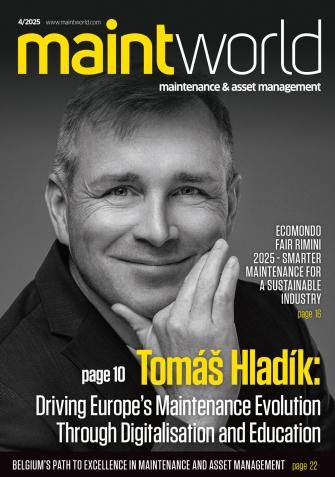
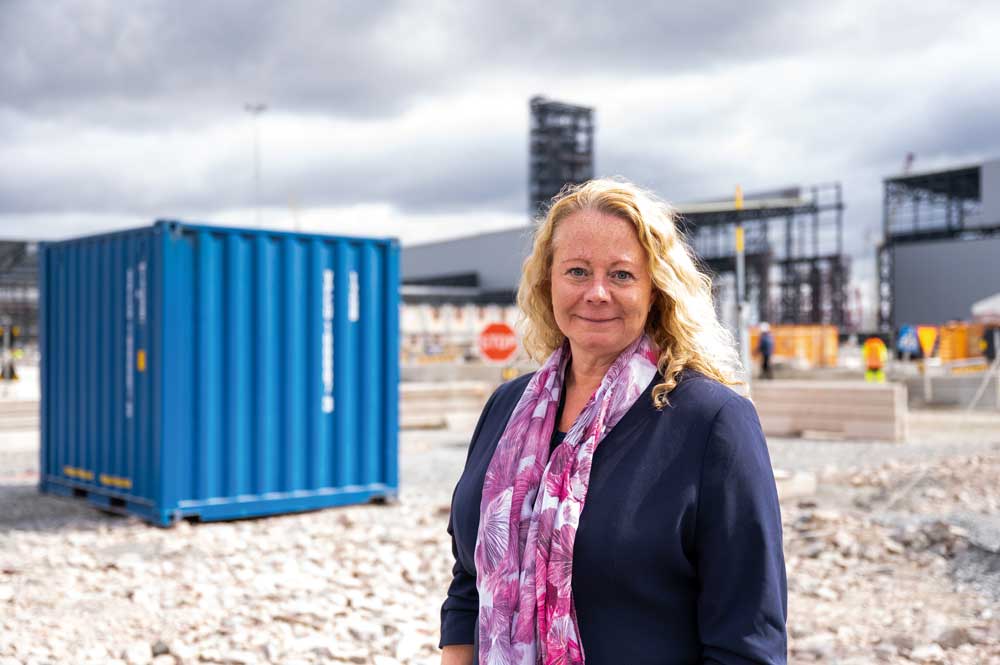
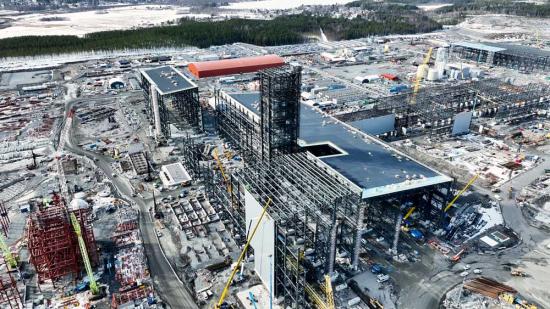
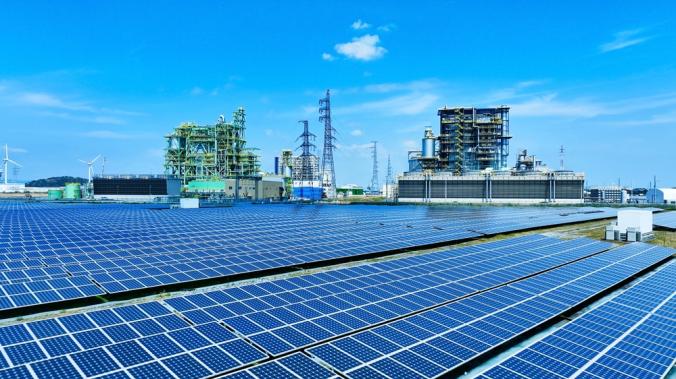
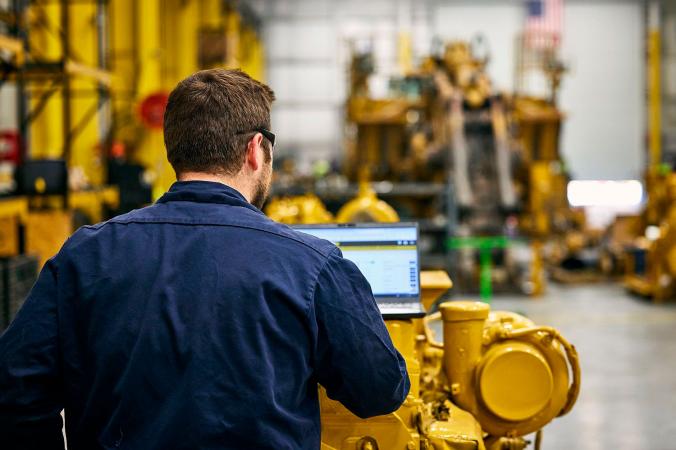
![EMR_AMS-Asset-Monitor-banner_300x600_MW[62]OCT EMR_AMS-Asset-Monitor-banner_300x600_MW[62]OCT](/var/ezwebin_site/storage/images/media/images/emr_ams-asset-monitor-banner_300x600_mw-62-oct/79406-1-eng-GB/EMR_AMS-Asset-Monitor-banner_300x600_MW-62-OCT.png)


